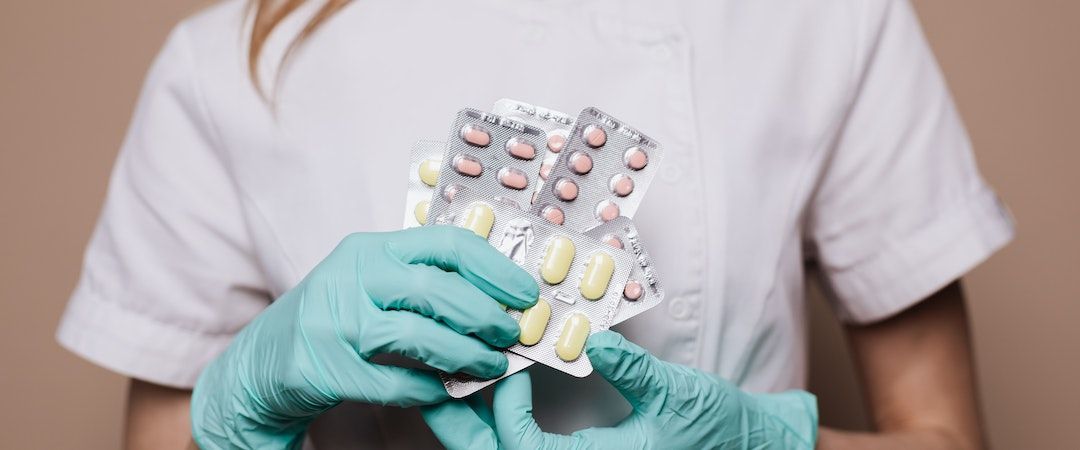Want To Become A Pharmacist? Know How!
Here's route to become a pharmacist. All you need to do is, get your preparations all set! Read the blog to seek information in detail.

Pharmacists are at the frontline of patient care, and their work is becoming more important than ever before. If you're interested in becoming a pharmacist, it's important to know what the job entails and what kind of training you'll need. In this blog post, we'll provide an overview of the pharmacy profession and discuss the steps you need to take to become a pharmacist. Stay tuned!

Are You Sure Of This Job?
The first and most important step is to ask yourself if you are ready for this dynamic job in medical field? You very well know doctors, nurses, pharmacists, and all frontline workers work unstoppable.
Since, there is no one specific route you have to take in order to become a pharmacist, but still there are a few things you should know before embarking on this career path. We will help outline the necessary steps and requirements for becoming a pharmacist, as well as some of the Pros and Cons of the profession. But you need to be sure first. If you're thinking about becoming a pharmacist, be sure to read on! And even if not, give it a read to stay inspired of the hard work involved in this job.
Who Are Pharmacists?
Medical line professionals who ensure provisioning of medication and relatable supplies are pharmacists. They closely work with patients to guide them regarding the dosage, intake, and usage of those medicines and products. Not to forget, they are real heroes who work unstoppable. We all know, in the pandemic scenario, they've been working on wheels.
What Do Pharmacists Do?

It’s a very dynamic profession and pharmacists are supposed to work closely with the public. So, if you like engaging with people, if you like being there for interaction with them, it’s a perfect job for you.
Roles And Responsibilities Of A Pharmacist
The following are roles and responsibilities of a pharmacist. Read ahead to explore!
- Keeping A Check Over Stock And Supplies: A pharmacist is supposed to look after the supply chain of drugs and stock of the medicines. He/she is supposed to ensure that they do not fall short of medicines.
- Medicines Dispensing: The major role is to dispense medicines to the patients. Looking at the prescriptions, looking after accuracy, and being absolutely vigilant while doing this is the goal.
- Staying Updated: A pharmacist is supposed to stay updated regarding government’s rules and regulations from the medical line.
- Making Patients Aware: Another responsibility is to make patients aware of their medication, timings/schedule of the same, dosage related information, and informing them about possible side effects if any.

- Provide Patients Vaccinations: Certain flu injections and vaccinations can also be provided by the pharmacists.
What Is The Route To Become A Pharmacist?
There are many ways to become a pharmacist in the United States. The most common route is to complete a four-year pharmacy program at an accredited college or university. During this time, students will take courses in chemistry, biology, pharmacology, and other medical subjects. Upon graduation, students must then pass a national exam in order to earn their pharmacist license. Some states also require additional exams or continuing education credits. However, with hard work and dedication, any student can become a pharmacist in the United States.
After completing a pharmacy degree program, you will need to pass the Pharmacy College Admission Test (PCAT) and earn a license from your state's Board of Pharmacy. You may also choose to pursue additional training through a pharmacy residency or fellowship program. Becoming a pharmacist requires completing a rigorous educational process, but it can be a rewarding career for those passionate about helping others.
Things To Keep In Mind While Becoming A Pharmacist
A pharmacist is a key member of the healthcare team. They are responsible for dispensing medication to patients and providing expert advice on the use of prescriptions, over-the-counter medications, and herbal supplements. Becoming a pharmacist requires completing a 4-year pharmacy degree program followed by a 1-2 year residency program. Upon completion of these requirements, pharmacists must pass a state licensure exam.

In addition to their academic credentials, pharmacists must have excellent communication and customer service skills. They must be able to work long hours, often under pressure, and have the ability to handle multiple tasks simultaneously. Pharmacists also need to be detail oriented and have strong problem-solving skills. They must be able to calm down patients and reduce their stress. With the ageing population and the increasing prevalence of chronic conditions, the demand for pharmacist services is expected to grow in the coming years. This makes pharmacy an attractive career option for medical students and those interested in medical jobs.